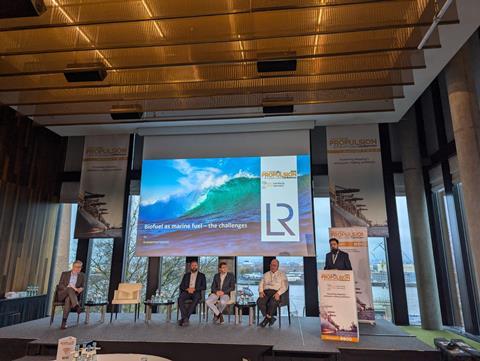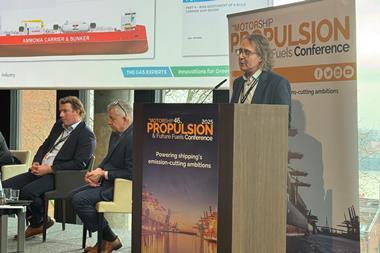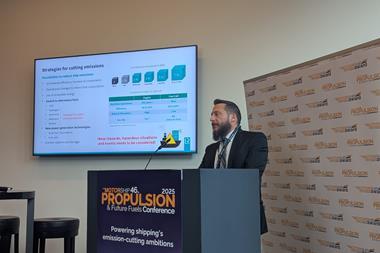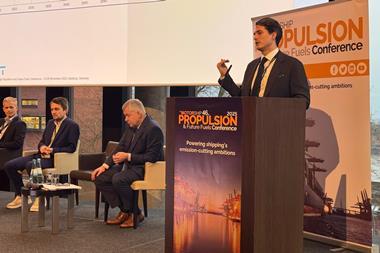Experts from across the maritime industry gathered to discuss biofuel as a pathway for decarbonising shipping at this year’s Propulsion and Future Fuels.

Key speakers addressed technological innovations, regulatory challenges, and operational adjustments required to integrate biofuels into the global fleet.
Jorge Manuel Gomes Antunes of Technoveritas highlighted advancements in biofuel technology. His team has developed BioHFO, a system using high-intensity ultrasound to integrate B100 biodiesel with heavy fuel oil without mixing the two until combustion. This approach reduces smoke emissions by 80% and achieves significant reductions in NOx and sulfur emissions. “We’ve decarbonised ships for our clients by over 50%, which not only impacts CII [Carbon Intensity Indicator] ratings but also cuts carbon taxes,” Antunes noted. He emphasised the importance of sourcing biofuels with ISCC certification to ensure traceability and sustainability.
Stefan Fahrnholz, R&D lead on decarbonisation at Carnival Maritime, underscored the regulatory drivers prompting biofuel adoption. European routes, for example, face tightening emissions standards. “Biofuels are a short-term solution to comply with regulations like Fit for 55, which combines emission pricing, sustainability criteria, and infrastructure development,” Fahrnholz explained. However, implementing biofuels across a fleet comes with hurdles, such as storage limitations, engine compatibility, and varying interpretations of international standards by flags and classification societies. Convincing stakeholders, including insurers and engine manufacturers, remains a critical step.
Carnival Maritime is also rethinking procurement strategies, moving beyond energy-centric pricing to incorporate emissions reductions. “Suppliers now offer contracts with emissions guarantees, but pricing complexities arise when sustainability certifications lag behind fuel delivery,” Fahrnholz said.
Remco de Witte, global application manager at Alfa Laval, discussed the practicalities of handling biofuels. “The new ISO 8217 standards released in 2024 include specific tests for stability and cold flow properties of biofuels. These parameters are critical for ensuring smooth operations,” de Witte said. Trials conducted by Alfa Laval demonstrated biofuels’ ability to reduce sulfur oxides (SOx) and particulate emissions while achieving NOx reductions comparable to conventional fuels.
De Witte also addressed cost barriers. While pure B100 biofuel remains expensive, blends such as B20 or B30 are cost-competitive with marine gas oil. Biofuels are easier to adopt than alternatives like ammonia or methanol, requiring only minor adjustments to fuel systems.
Despite challenges, biofuels offer an immediate solution for emissions reduction in shipping, especially for existing fleets. Speakers agreed that collaboration among fuel suppliers, shipowners, regulators, and technology providers is essential to scale adoption.
The conference underscored that while biofuels may not be the ultimate answer, they provide a practical and scalable way to address the shipping industry’s environmental impact today.








